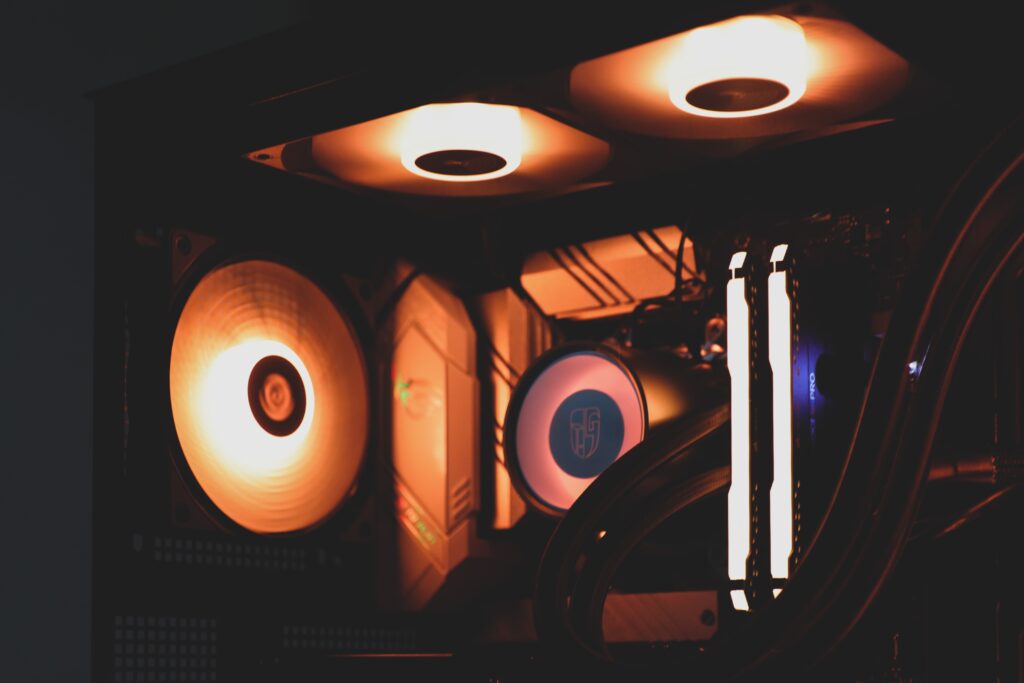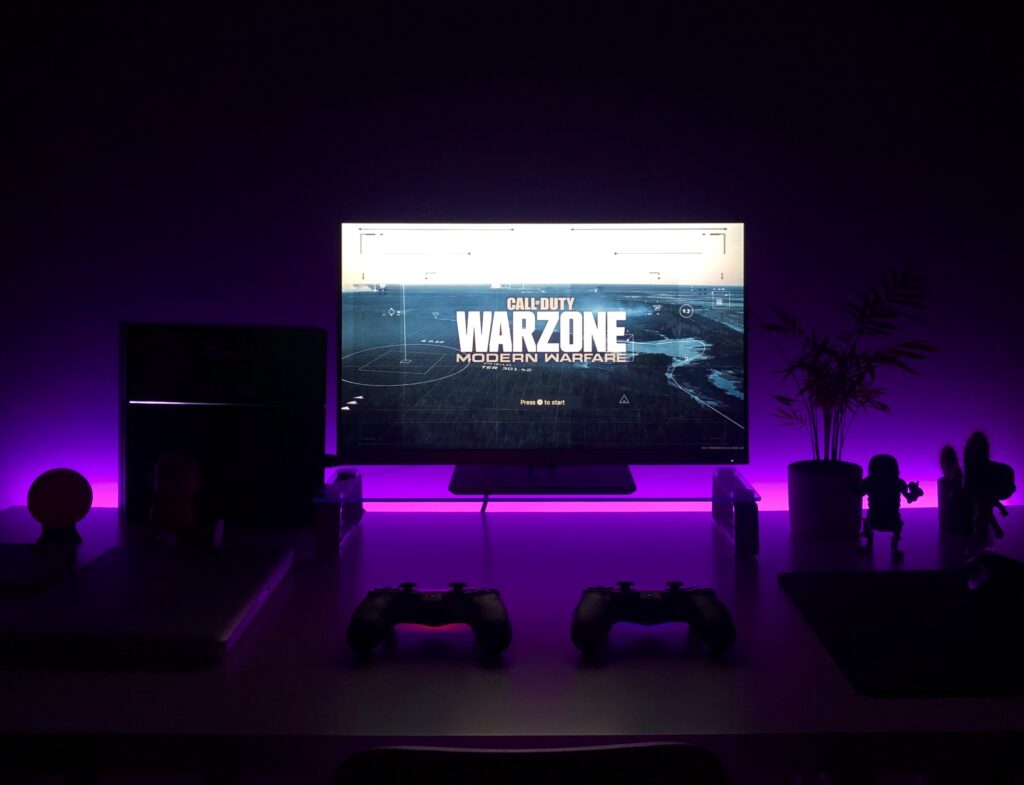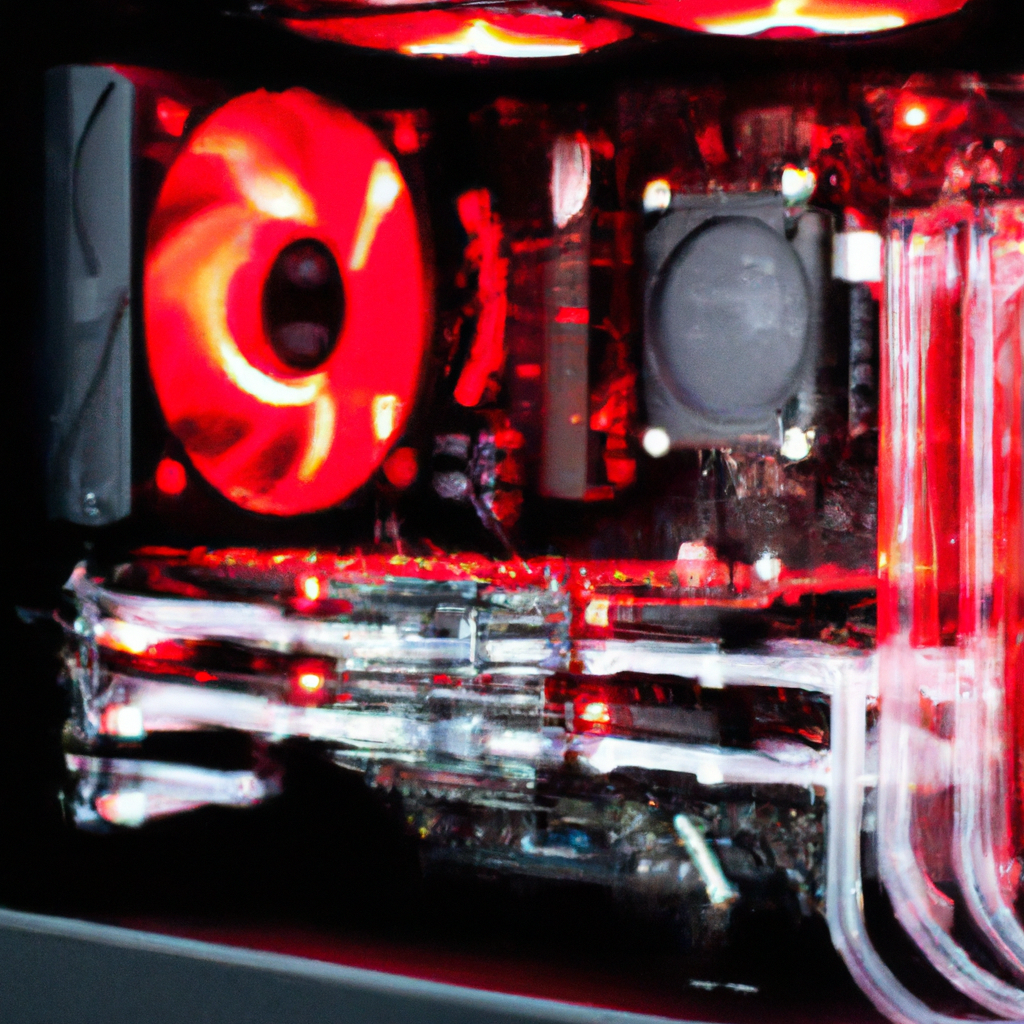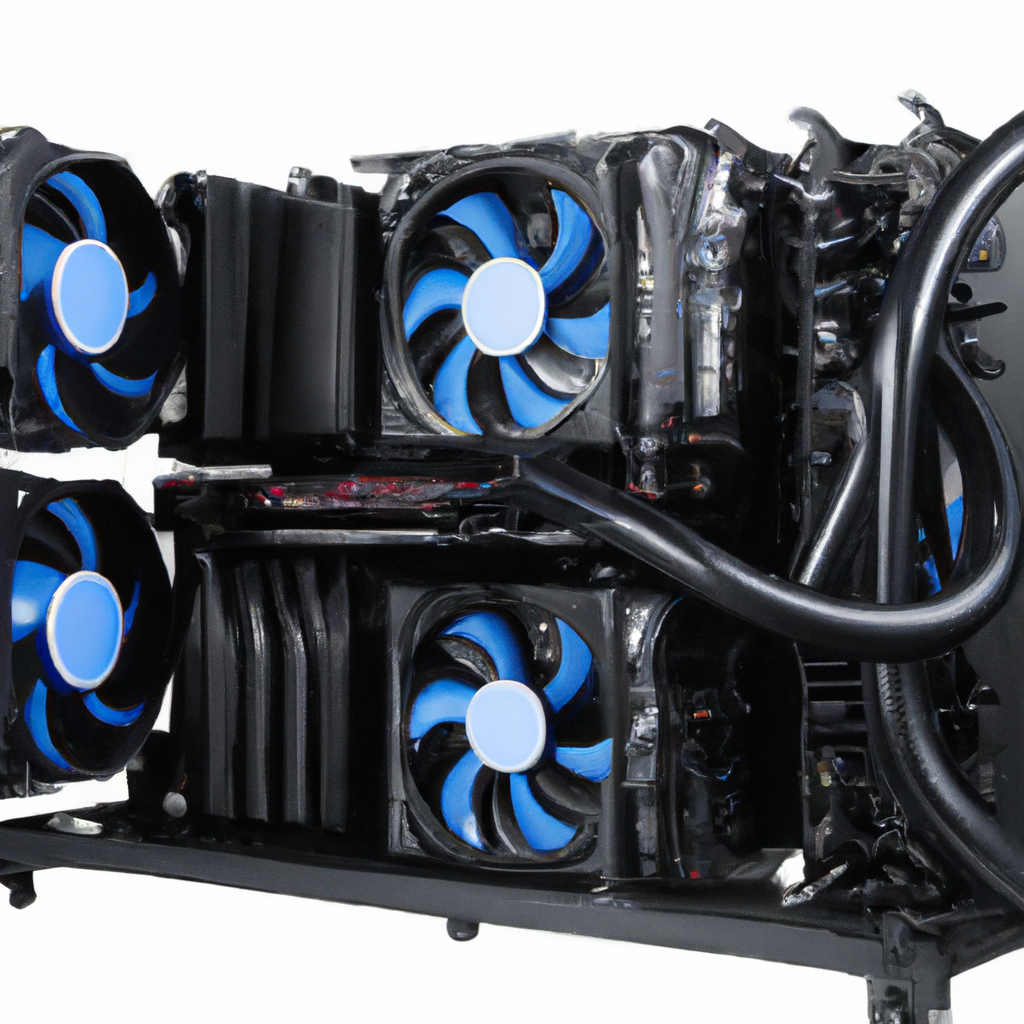Is Liquid Cooling Necessary For A Gaming PC? 10 Useful Things to Know
Is Liquid Cooling Necessary For A Gaming PC: Introduction
When it comes to building your ultimate gaming setup, there’s no shortage of choices and decisions to be made. Among the many options available, one question that often arises is, “Is Liquid Cooling Necessary For A Gaming PC.” With its sleek appearance and promise of superior performance, liquid cooling has garnered a considerable amount of attention. In this article, we’ll explore the benefits and drawbacks of liquid cooling and help you determine if it’s a necessary investment for your gaming needs. So, grab your controller, and let’s dive into the world of cooling solutions!
Is Liquid Cooling Necessary For A Gaming PC: What is Liquid Cooling?
Explanation of liquid cooling
Liquid cooling is a method of cooling electronic devices, such as gaming PCs, by using a liquid coolant instead of traditional air cooling methods. The coolant, often a mixture of water and other additives, circulates through specialized tubes, blocks, and radiators to draw heat away from components such as the CPU and GPU. This coolant absorbs the heat and carries it away, preventing the components from overheating and ensuring optimal performance.
Types of liquid cooling systems
There are two main types of liquid cooling systems: custom loops and closed-loop coolers (CLCs). Custom loops are highly customizable and offer the best cooling performance, but they require more time, effort, and knowledge to assemble and maintain. CLCs, on the other hand, come pre-assembled and are easier to install, making them a more popular choice for beginners or those who prefer a hassle-free cooling solution.
Advantages of liquid cooling
Liquid cooling offers several advantages over traditional air cooling methods. Firstly, it provides superior cooling performance, allowing for lower temperatures and increased overclocking potential. This can lead to improved gaming and overall system performance. Additionally, liquid cooling is typically quieter than air cooling, as the fans used in the latter can generate more noise. The aesthetics of liquid cooling, with its colorful coolant and sleek tubing, also appeals to many gamers and PC enthusiasts. Lastly, liquid cooling can also help prolong the lifespan of components by reducing thermal stress and preventing overheating-related damage.
The Importance of Cooling in a Gaming PC
Effects of overheating on gaming performance
Overheating can have severe consequences on gaming performance. When components, such as the CPU and GPU, become too hot, they can start to throttle, meaning they reduce their performance to cool down. This leads to a decrease in frame rates, stuttering, and overall laggy gameplay. Overheating can also shorten the lifespan of the components, potentially resulting in costly repairs or replacements. To ensure that your gaming PC performs at its best, proper cooling is crucial.
Benefits of proper cooling in a gaming PC
Proper cooling has numerous benefits for a gaming PC. Firstly, it allows for consistent and stable performance. By keeping temperatures in check, components can operate at their intended clock speeds, ensuring smooth gameplay without any sudden drops in performance. Secondly, cooling also helps to prevent thermal throttling, as mentioned earlier. By regulating temperatures, components can maintain their peak performance consistently. Additionally, proper cooling can help to minimize the risk of hardware failure, as excessive heat can cause irreparable damage to sensitive components. Investing in a reliable cooling solution can save you from avoidable headaches in the future.

Factors to Consider for Cooling a Gaming PC
CPU and GPU heat generation
The CPU and GPU are the two primary heat-generating components in a gaming PC. When selecting a cooling solution, it is crucial to consider the specific heating characteristics of these components. CPUs, especially high-performance models, can generate a substantial amount of heat. Overclocking can further increase this heat generation. Similarly, powerful gaming GPUs can also become hot during intensive gaming sessions. Understanding the heat output of your CPU and GPU will help you choose an appropriate cooling solution.
Case size and airflow
The size of your PC case and its airflow capabilities play a significant role in cooling efficiency. A larger case generally allows for better airflow, as it provides more room for fans, radiators, and air to circulate. Smaller cases, especially those with compact designs, pose challenges for airflow and may require specific cooling solutions. It is important to consider the airflow potential of your case and choose cooling components that can effectively dissipate heat within its confines.
Ambient temperature
The ambient temperature of the room or space where your gaming PC is located can impact cooling effectiveness. If your room tends to get hot or lacks proper ventilation, it can be more challenging to maintain low temperatures inside your PC. Higher ambient temperatures can also put additional stress on cooling components, potentially reducing their efficiency. If you live in a warm climate or have limited cooling options in your gaming setup, it is important to carefully choose cooling solutions that can handle higher temperatures.
Overclocking
Overclocking your components, while providing performance benefits, also increases heat generation. If you are planning to overclock your CPU or GPU, it is crucial to choose a cooling solution that can handle the additional heat load. Overclocking without proper cooling can result in instability, throttling, or even component damage. Ensure that your chosen cooling solution has sufficient capacity to handle the heat generated by overclocking.
Budget
Budget is an important factor to consider when selecting a cooling solution for your gaming PC. While liquid cooling is highly effective, it can also be more expensive compared to traditional air cooling methods. Custom loops, in particular, require additional components such as pumps, reservoirs, and fittings, which can add to the cost. Closed-loop coolers, on the other hand, offer a more affordable option with similar performance benefits. It is essential to evaluate your budget and consider the balance between cooling performance and cost.
Is Liquid Cooling Necessary For A Gaming PC: Air Cooling vs Liquid Cooling
Comparison of air cooling and liquid cooling
Air cooling and liquid cooling are the two main methods of cooling a gaming PC. Air cooling relies on fans and heat sinks to dissipate heat, while liquid cooling utilizes a liquid coolant to transfer heat away from components. Both methods have their advantages and disadvantages, and the choice between them depends on factors such as performance requirements, noise preferences, and budget constraints.
Performance differences
In terms of cooling performance, liquid cooling generally outperforms air cooling. This is because liquid can absorb and carry away heat more efficiently than air. Liquid cooling allows for lower temperatures, which can be advantageous for high-performance gaming rigs or when overclocking. Air cooling, while still effective, may struggle to maintain low temperatures under heavy loads or in warm environments.
Noise levels
Noise levels can be a crucial factor for many gamers, especially those who prioritize a quiet gaming environment. Air cooling typically relies on multiple fans, which can generate noticeable noise, especially at higher speeds. Liquid cooling, particularly closed-loop coolers, usually produce less noise due to their quieter pump and fewer fans. However, custom liquid cooling loops can still produce some noise if not designed and configured properly.
Installation and maintenance
Installation and maintenance differ significantly between air cooling and liquid cooling solutions. Air cooling is generally easier to install, as it requires minimal components and can be installed with basic knowledge. Maintenance typically involves cleaning dust from fans and heat sinks regularly. In contrast, liquid cooling systems, especially custom loops, require more expertise to assemble and install correctly. They also require periodic maintenance, such as checking coolant levels and potential leakages, which might be intimidating for beginners.
Cost comparison
Cost is an essential aspect when considering cooling solutions for a gaming PC. Air cooling is generally more affordable, as it requires fewer components and is simpler to install. However, high-end air coolers with advanced features can still be relatively expensive. Liquid cooling, especially custom loops, can be more expensive due to additional components and higher-quality materials. Closed-loop coolers offer a middle ground, providing better performance than air cooling while being more accessible in terms of cost.

When is Liquid Cooling Necessary?
High-end gaming PCs with powerful components
Liquid cooling becomes necessary when building high-end gaming PCs with powerful components that generate a significant amount of heat. These components, such as top-tier CPUs and GPUs, may benefit from liquid cooling to ensure optimal performance and prevent overheating. The ability of liquid cooling to dissipate heat efficiently allows these components to operate at their maximum potential without throttling, resulting in smoother gameplay and better overall performance.
Extreme overclocking
For enthusiasts who wish to push their CPUs and GPUs to extreme overclocks, liquid cooling is often necessary. Overclocking significantly increases heat generation, and traditional air cooling methods may struggle to keep temperatures in check. Liquid cooling, with its superior heat dissipation capabilities, allows for more aggressive overclocks while maintaining stable temperatures. It is important to choose a robust liquid cooling solution that can handle the increased heat load associated with extreme overclocking.
Compact and low-profile cases
Compact and low-profile PC cases often pose challenges for airflow and heat dissipation. These cases may not provide sufficient space for large air coolers or may have limited options for case fans. In such situations, liquid cooling can be a necessary solution. Closed-loop coolers, with their compact design and flexibility, can fit into smaller cases more easily, ensuring efficient cooling in space-restricted environments.
Noise-sensitive environments
Liquid cooling may be necessary in noise-sensitive environments, where keeping noise levels to a minimum is crucial. Air cooling, with its multiple fans, can generate noticeable noise, which may disturb users in quiet or small spaces, such as bedrooms or offices. Liquid cooling, with its quieter operation, can be a suitable choice for maintaining a peaceful gaming environment without sacrificing cooling performance.
Is Liquid Cooling Necessary For A Gaming PC: Alternative Cooling Solutions
Heat sinks and fans
Heat sinks and fans are the most common and affordable cooling solutions for gaming PCs. Heat sinks, made of conductive materials like aluminum or copper, absorb heat from components and transfer it to the surrounding air. Fans help to dissipate this heat by blowing air across the heat sink. Together, they provide effective cooling for moderate gaming setups and come as standard in most PCs.
Dual-fan configurations
Dual-fan configurations involve using multiple fans in conjunction to enhance cooling performance. This can include dual-fan CPU coolers or multiple case fans strategically placed to optimize airflow. Dual-fan configurations can provide improved cooling compared to single-fan setups, especially if the case has limited airflow or if the PC components require more efficient heat dissipation.
Closed-loop liquid cooling
Closed-loop liquid cooling, commonly referred to as all-in-one (AIO) coolers, offers a middle ground between air cooling and custom liquid cooling loops. AIO coolers come pre-filled and sealed, with the pump, radiator, and CPU block already integrated. They are relatively easy to install, requiring minimal maintenance. AIO coolers deliver better cooling performance than air cooling, making them ideal for users who want enhanced cooling without the complexity or cost of custom loops.

Liquid Cooling Misconceptions
Maintenance requirements
One common misconception about liquid cooling is that it requires extensive and frequent maintenance. While maintenance is necessary to ensure optimal performance and longevity of the cooling system, it is not as arduous as often believed. Closed-loop liquid coolers, such as AIO coolers, require minimal maintenance, usually limited to occasional checks for dust accumulation and ensuring proper functioning of the pump and fans. Custom loops may require slightly more maintenance, such as monitoring coolant levels and regular cleaning, but with proper planning and attention, the maintenance can be fairly manageable.
Potential risks and leaks
Another misconception surrounding liquid cooling is the fear of leaks and potential risks to the PC’s components. While it is true that leaks can occur in liquid cooling systems, they are relatively rare with well-designed and properly maintained setups. Most leaks are the result of user error during installation or maintenance, rather than inherent flaws in the cooling system itself. By following proper installation procedures, using quality components, and regularly inspecting the system for any signs of leaks, the risk of damage to the PC can be minimized.
Complexity of installation
The installation of liquid cooling systems, especially custom loops, is often perceived as complex and intimidating. While it is true that custom loops require more knowledge and time to install compared to air cooling or closed-loop coolers, they are still within reach of many PC enthusiasts. Numerous online resources, tutorials, and forums provide step-by-step guidance on building custom loops, making the process more accessible for those willing to put in the effort. Closed-loop coolers, on the other hand, offer a simpler installation process, with most components pre-assembled, easing concerns about complexity.
Determining Your Cooling Needs
Assessing your PC usage
Understanding your PC usage patterns is crucial when determining your cooling needs. If you use your PC primarily for gaming or other demanding tasks, such as video editing or 3D rendering, you will likely require a more robust cooling solution. High-performance components tend to generate more heat, so investing in liquid cooling or advanced air cooling options may be necessary. On the other hand, if you mainly use your PC for light web browsing, document editing, and casual gaming, a standard air cooling setup may be sufficient.
Understanding your CPU and GPU cooling requirements
Every CPU and GPU has different cooling requirements based on their power consumption and thermal design. It is important to refer to the manufacturer’s specifications to determine the recommended cooling solutions for your specific components. CPUs often come bundled with stock coolers that are sufficient for most users, but those engaging in heavy gaming or overclocking may benefit from aftermarket coolers. High-performance gaming GPUs may also require in-depth cooling considerations, especially if you plan to push them to their limits. By understanding the cooling requirements of your CPU and GPU, you can make informed decisions about the appropriate cooling solution.

Professional Gaming PC vs Casual Gaming PC
Differences in cooling requirements
Professional gaming PCs, designed for esports or competitive gaming, often require more advanced cooling solutions compared to casual gaming PCs. Professional-grade components, such as high-end CPUs and GPUs, tend to generate more heat during intense gaming sessions due to their higher clock speeds and power consumption. To maintain optimal performance and prevent any performance throttling, professional gaming PCs often utilize liquid cooling or high-performance air cooling options. Casual gaming PCs, on the other hand, can make use of more cost-effective cooling solutions without sacrificing gaming performance.
Budget considerations
Budget is an essential factor when it comes to cooling a gaming PC, as more advanced cooling solutions can be relatively expensive. Professional gaming PCs, built with top-of-the-line components and aiming for maximum performance, often allocate a larger portion of the budget towards cooling. These systems may incorporate custom liquid cooling loops or high-end closed-loop coolers to ensure superior cooling performance. Casual gaming PCs, which typically have more constrained budgets, can still achieve adequate cooling with affordable air cooling solutions or mid-range closed-loop coolers.
Is Liquid Cooling Necessary For A Gaming PC: Conclusion
In conclusion, liquid cooling can be a valuable addition to a gaming PC, providing superior cooling performance, reduced noise levels, and enhanced overclocking potential. While liquid cooling is not always necessary for every gaming PC, certain factors such as high-end components, extreme overclocking, compact cases, or noise-sensitive environments can make liquid cooling a worthwhile investment. However, air cooling still remains a viable and cost-effective cooling solution for many gamers, providing sufficient cooling performance for moderate gaming setups. Ultimately, the choice between air cooling and liquid cooling depends on individual requirements, budget, and preferences, and it is essential to consider factors such as CPU/GPU heat generation, case size and airflow, ambient temperature, overclocking, and budget when making the decision.





